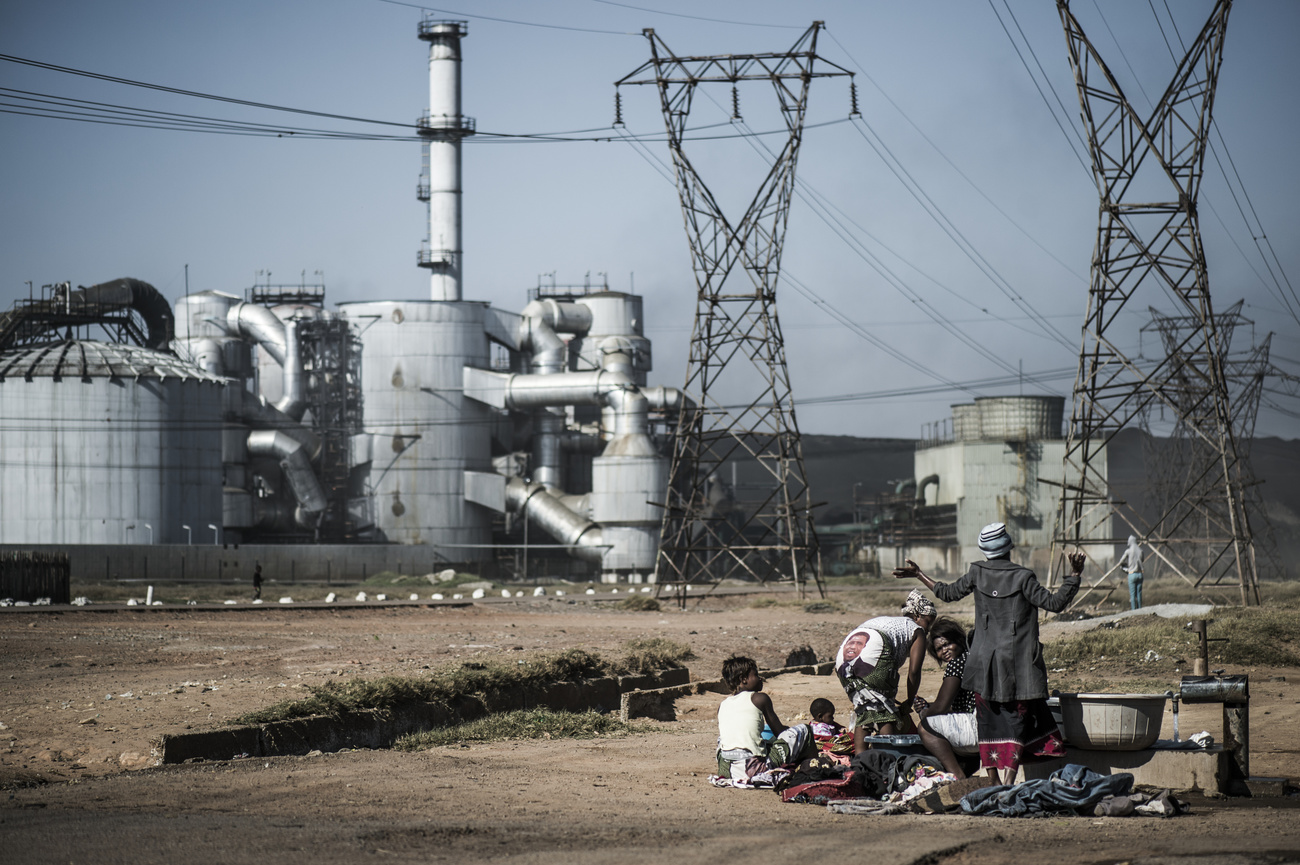New corporate responsibility rules hand power to consumers

The corporate liability initiative was rejected by popular vote last Sunday. But multinationals based in Switzerland will still have to comply with new rules introduced by the counter-proposal. This is a chance for consumers to play a greater role, says economist Emmanuel Fragnière.
Multinational companies operating from Switzerland shall not be held accountable for environmental and human rights violations abroad. The people’s initiative “for responsible businesses”, which aimed to change the status quo, was rejected last Sunday in a nationwide vote. A majority of cantons said “no”, although a simple majority of voters accepted the text by 50.7%.

More
Responsible business initiative rejected at the ballot box
This does not mean, however, that the issue has now been buried. With the rejection of the initiative, the indirect counter-proposal drafted by parliament will come into force instead. Although less restrictive, it does impose new obligations on companies. Now, any firm with at least 500 full-time employees or a turnover of more than CHF40 million ($44.9 million) will have to produce an annual report on how it is dealing with environmental, social, personnel, corruption and human rights issues. These reports are to be made accessible to the public.
In addition, all companies with their head office or main administration in Switzerland will have to exercise due care in their product supply chain, if it involves minerals from conflict zones or goods and services where the existence of child labour is suspected. Here, too, an annual report must be drawn up and published.
The proponents of the “responsible business initiative” view this counter-proposal as too watered down, as it introduces no new responsibility for Swiss companies abroad. However, in the view of Emmanuel Fragnière, an economist and professor of risk management at the University of Applied Sciences and Arts of Western Switzerland, it is a “very smart” instrument.
swissinfo.ch: Will many Swiss companies be affected by the counter-proposal, in particular the duty of care with regard to ore mined in conflict zones and child labour?
Emmanuel Fragnière: Switzerland is the world’s major operational hub for commodity trading. Although we have no sea or ports, we manage all the logistics. The initiative rejected last Sunday would have directly impinged on this trade and put it in a very difficult position. The counter-proposal also affects these companies by introducing new obligations.

What does the counter-proposal stipulate?
The initiative wanted to establish a law with sanctions for businesses that failed to comply. I believe that the counter-proposal is a good instrument, as it requires companies to produce a social and environmental status report.
Do you remember the movie “Blood Diamond”, which exposed the diamond trade in Sierra Leone? It had a huge impact, to the point that all illegal mines were then shut down. But what is not known is that this caused human tragedies, for even though these people were doing very dangerous work in appalling conditions, they at least had a source of income.
Yes there are children working in the mines, yes human rights are being trampled on, and this is unacceptable. But if we come along with laws, regulations and punishments, the ones who suffer most are the very people who are being exploited.
How will the social and environmental reports that companies must produce actually change things?
They will act as a catalyst. They are reports, but they are important as people will go and check what is actually being done. I have seen in my research that there is a growing awareness among consumers, who succeed in making companies bend to their wishes. This is really a fundamental sociological phenomenon – companies can no longer get away with “greenwashing”.
It is the first time in capitalist history that we have witnessed such a change. We also saw it in the result of the popular vote in favour of the initiative. In this sense, I think that the counter-proposal is very intelligent: society is changing, and so it is the consumers themselves who will punish companies that misbehave.
I should also point out that we have this “bobo” [bohemian values, bourgeois lifestyle] side in Switzerland, which prompts us to vote “yes” to the initiative on human rights, while taking advantage of Black Friday to buy a laptop at half price. Glencore is not the problem, but the consumers themselves. If they are not willing to pay the real price, then it is unrealistic to believe we can provide decent wages to those working in the primary markets of mining and agriculture.
Is Switzerland going further than international law with this counter-proposal?
Switzerland is ahead of other countries. The result of the vote on the initiative shows that corporate responsibility is one of the people’s priorities, so we can go through with the process and position ourselves as a leader in the field.
I find it very interesting that Switzerland, because it is considered a “good democracy”, should become the country where debates on social innovation take place. With our international organizations, our NGOs and our multinationals, we provide the whole world with a distilled version of discussions on these issues.
How do you see corporate responsibility evolving globally?
I believe we should focus on the United Nations in our efforts to make businesses more accountable. If well-established rules were in place globally, multinationals would be the first to take steps to improve working conditions, as this would help boost their margins. But as long as there are different flags, separate sovereign laws and consumers who want rock-bottom prices, there will be children working in the mines.
With increasing digitalization and electronic development, our need for rare-earth metals and copper will keep growing. Pressure on mining operations will intensify, and it will undoubtedly be possible to better standardize work processes. But the question remains: how can we ensure, even in a very long production chain, that the people at the far end of it can live decently?
It reminds me of a strike by electricians in a hospital 40 years ago. They felt they were underrated compared to doctors, whereas without electricity nothing would work. By the time we need six times more copper, I hope we will have understood that the workers slaving away in the mines are just as important as those developing iPhones. It is absolutely essential that we recognise the true value of raw materials.

More
Vote November 29: Spotlight on ethical business practices

In compliance with the JTI standards
More: SWI swissinfo.ch certified by the Journalism Trust Initiative










Join the conversation!